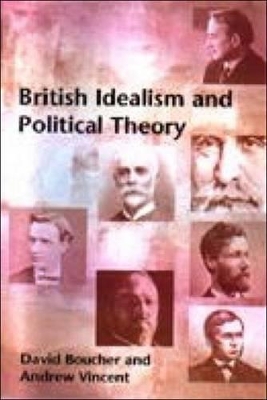British Idealism - influenced by the character of German Idealist thought at the end of the eighteenth century, developed by Kant, Fichte and Hegel - began to establish its roots during the middle of the nineteenth century and rapidly became the dominant British philosophy. It began to be challenged at the turn of the century by philosophers including Bertrand Russell and by the end of the First World War it was on the retreat, although its philosophical reverberations are still evident. Testimony to this fact is the considerable renaissance in all aspects of Idealist studies, and particularly in the works of its most recent twentieth-century exponents Michael Oakeshott and R.G. Collingwood. This book offers an introduction to British Idealism through a study of each of the seven key thinkers - T. H. Green, Bernard Bosanquet, F. H. Bradley, Henry Jones, David Ritchie, R. G. Collingwood and Michael Oakeshott.
It explores the background religious, political, moral, ideological and economic themes which underpin the work of the thinkers and shows the relevance of their philosophy - with the emphasis on social cohesiveness and the relationship between individual and collective responsibility - to current politics. Written by two of the leading experts in the field, this is a valuable text that will introduce the theory of British Idealism to a broad range of readers.
- ISBN10 0748614281
- ISBN13 9780748614288
- Publish Date 30 October 2000 (first published 27 October 2000)
- Publish Status Active
- Publish Country GB
- Imprint Edinburgh University Press
- Format Paperback
- Pages 224
- Language English
- URL http://columbia.edu/cu/cup/catalog/data/074861/0748614281.HTM
